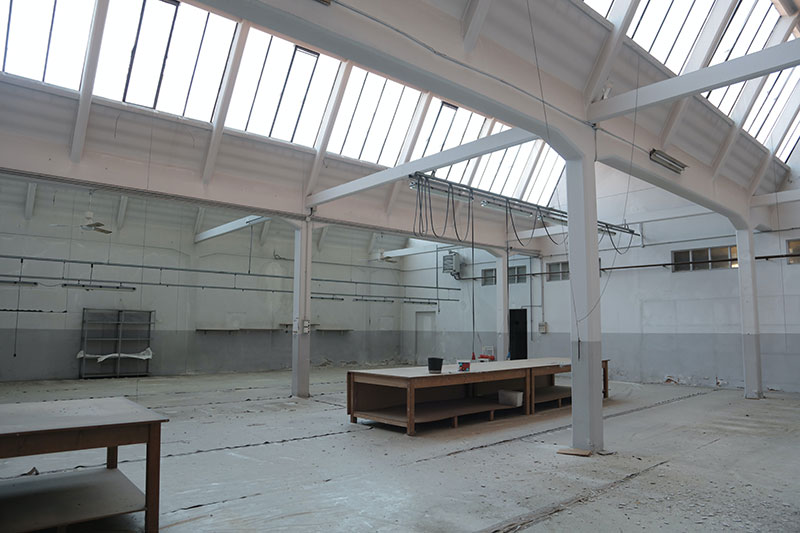Who is Responsible if Someone Gets Hurt on Your Property in New York

When someone gets injured on property you own in New York, it often raises pressing legal questions over liability and financial responsibility for the victim’s medical expenses, lost wages, and suffering. Premises liability law governs scenarios involving personal injury accidents on your land.
As a home, business, or land owner, you may bear duties to ensure people legally on your premises remain protected from harm. However, liability gets complicated quickly based on whether the injured person was an invitee, licensee or trespasser.
To simplify things for you, our premises liability lawyers will outline the key factors that determine liability and guide you in responding to incidents in a way that protects your rights.
What New York Premises Liability Law Says About Property Injuries
As a property owner, the law legally obligates you to keep your land reasonably safe for others. This concept is called “premises liability” under New York law.
You must properly maintain your property to avoid dangerous conditions. The courts would consider you negligent if you failed to address risks or warn visitors about known hazards.
In other words, when your carelessness results in someone getting injured, you may have to pay their damages. Your specific duty of care and liability risk would depend on which of the three statutory visitor categories the harmed party fell into.
Types of Property Visitors
New York classifies visitors on your property as invitees, licensees, or trespassers. Their category impacts the level of care you must provide and your liability exposure when an injury occurs.
Invitees
Invitees are welcomed individuals you personally invited or who visit for your benefit. Common examples include customers, clients, patrons, and guests.
You owe invitees the highest duty of reasonable care. That means appropriately maintaining your premises and warning invitees about concealed dangers that could cause harm.
If you are negligent in keeping your property safe, you may be held liable for any injuries an invitee suffers due to your carelessness. Slip and fall accidents commonly prompt invitee premises liability claims against property owners.
Licensees
Licensees enter your property with permission but for their own intended purpose. They are not personally invited guests like invitees. Examples include visitors, salespeople, and delivery workers.
For licensees, your duty is limited. You must avoid willfully, wantonly, or intentionally injuring them. You must also warn about known hidden dangers that could cause substantial harm. However, you do not have an extensive obligation to inspect for or repair defects on your land.
Contrarily, you may be liable for resulting damages when you neglect to warn the licensee about a known dangerous condition that injures the person.
Trespassers
A trespasser enters your property without permission. Your legal duty to these unofficial visitors is very minimal.
You cannot deliberately harm trespassers or set traps intending to hurt them. However, you generally have no responsibility to maintain safe conditions for those on your land without consent.
You would only face liability if a trespassing victim can prove you willfully or wantonly caused their injury. Otherwise, unauthorized visitors hurt while trespassing usually cannot bring legal action against you.
Key Factors That Determine Liability for Accidents on Your Property
If a visitor gets injured on your property, several noteworthy factors determine whether you bear responsibility:
Dangerous Property Conditions
Failing to properly maintain your premises or address known hazards could constitute negligence. Visitors hurt by unsafe conditions may argue you should pay their damages.
For example, if you know about a deteriorating walkway but neglect to repair or barricade it, you may be liable if someone trips and gets injured unless the person is a trespasser. Promptly fixing defects and restricting access to dangers is crucial for avoiding liability.
Liability for Injuries While Performing Construction
Injuries can also occur when people actively work on your property. If you hire uninsured or unlicensed contractors and they or their workers get injured, you may share liability based on negligent hiring or oversight.
Requiring valid insurance and credentials from all contractors helps reduce liability risks when outsourcing work. Staying involved in project safety protocols also helps limit exposure.
Contractors or Employees Injuries on My Property
Another common scenario happens when workers sustain an injury on your property. Special NY laws apply in these situations.
For independent contractors hurt due to property negligence, labor laws may make you liable for damages, like with regular visitors. However, for employees, workers’ compensation insurance usually covers their damages. These policies protect you from personal injury lawsuits.
Proper homeowner’s insurance is vital when employees or contractors face on-site risks. It helps ensure expenses get covered while limiting your direct liability.
Slip-and-Fall Accidents
Slips and falls account for many premises liability claims. Common causes like snow or ice, uneven floors, poor lighting, loose rugs, cluttered walkways, or wet surfaces often indicate negligent maintenance or housekeeping.
If you fail to address these hazards after becoming aware of them, you may bear legal and financial liability when someone is injured. Acting quickly to eliminate slip and fall risks is essential.
Steps Property Owners Should Take to Avoid Accidents on Their Property
While you cannot prevent every accident, innovative protocols help minimize liability risk when incidents do occur. The following essential land maintenance practices can lower premises liability:
- Conduct Regular Inspections and Initiate Repairs — Frequently assessing common areas and seldom-used spaces helps you identify potential dangers to address them early. Fixing issues quickly and preventing access until workers finish repairs increases safety.
- Install Warning Signs and Barriers — For risks that you cannot immediately remedy, use signs, tape, cones, or fences to cordon off hazardous areas. Doing this warns visitors about danger and prohibits invitee access to prevent falls.
- Verify Adequate Insurance Coverage — Carrying appropriate policies helps cover damages if injuries still happen. Both homeowners and commercial general liability policies can provide important protections. Umbrella coverage also offers additional capacity above base policy limits.
- Carefully Document Any Incidents — If accidents occur, immediately creating detailed records about what happened provides valuable evidence. This documentation includes photos or video, written witness statements, and copies of medical reports. Thorough documentation strengthens your defense and can help increase settlement value.
Were You Injured on Someone’s Property in New York? Protect Your Rights.
Dealing with health issues and missing work is already stressful after getting hurt on another person’s property. Don’t go the legal battle alone and risk leaving money on the table covering massive medical bills and income loss, dragging you underwater.
Our firm knows firsthand the costs people face after suffering needless injuries. We partner with victims to hold irresponsible property owners fully accountable.
Our personal injury attorneys will comprehensively assess your situation free-of-charge to discuss compensation eligibility and advise on best steps pursuing fair damages. We’ll stand up to uncooperative insurance companies protecting careless property occupiers too often neglecting safety and maintenance.
Contact us today to schedule your free consultation. Get the justice and financial support you properly deserve during this turbulent period.



